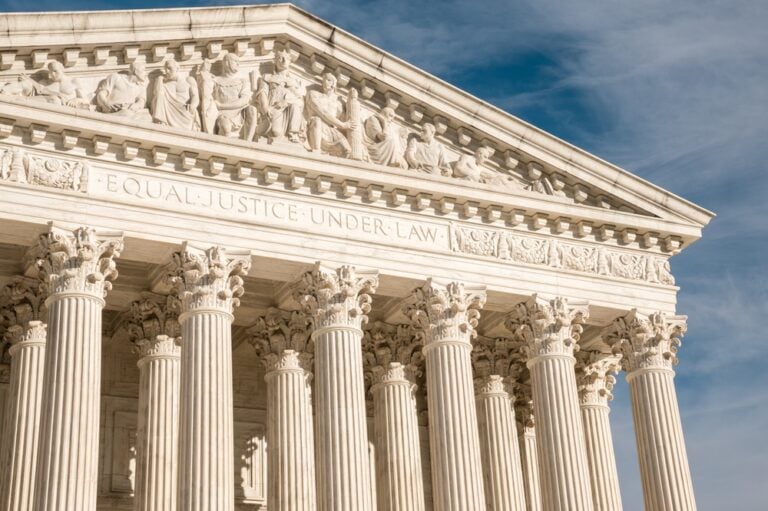Supreme Court Decision Again Undermines Clean Water Act Protections
By: Waterkeeper Alliance

The U.S. Supreme Court has issued a 5-4 decision that severely restricts the ability of the Environmental Protection Agency (EPA) and states to protect water quality under the Clean Water Act (CWA).
The ruling prevents the enforcement of essential permit limitations based on the condition of the waters to which pollutants are discharged–which the Court calls “end result” limitations–in National Pollutant Discharge Elimination System (NPDES) permits.
These types of permit terms, which have now been declared unlawful, have been utilized by federal and state regulators for decades to ensure that permitted pollutant discharges do not violate state water quality standards, and were critical tools to ensure the health of our waters.
This decision significantly undermines the long-standing objective of the CWA, which is to “restore and maintain the chemical, physical, and biological integrity of the Nation’s waters.” By dismantling this crucial tool, the Court has made it more difficult to protect water bodies from harmful pollutants, including raw sewage discharges.
In its legal challenge to its CWA discharge permit for its combined sewer overflows to the Pacific, the City of San Francisco argued that EPA’s use of broad, nonspecific wastewater terms based on the condition of the receiving waters lacked clear, enforceable standards. Writing for the five-Justice majority, Justice Samuel Alito held that EPA could not enforce water quality standards without specifying discharge limits, and could not hold the City responsible for the condition of the receiving waters despite the fact that there were no other pollutant discharges nearby. Justice Amy Coney Barrett, writing for a four-Justice minority, correctly described the majority’s holding as a “weak theory” that is “contrary to the text” of the Clean Water Act.
The ruling overturned a decision by the Ninth Circuit Court of Appeals, which had upheld EPA’s broader permitting authority. Justice Amy Coney Barrett’s dissent stressed that the agency must retain the flexibility to implement broader restrictions when necessary to protect water quality.
Due to the importance of “end result” water quality based effluent limitations to protecting people and ecosystems from pollution, Waterkeeper Alliance and our partners submitted an amicus curiae (friend of the court) brief supporting EPA’s position in the case.
Response from Marc Yaggi, CEO, Waterkeeper Alliance:
“Bit by bit, the power of the Clean Water Act is being undermined, weakening protections for our waters, and limiting EPA’s ability to safeguard public health and the environment. The Supreme Court has set a dangerous precedent that could compromise the safety of our rivers, lakes, and drinking water sources. This ruling undermines decades of progress in environmental protection and leaves communities vulnerable to unchecked pollution.”